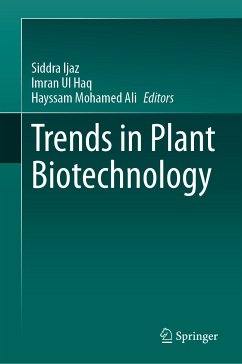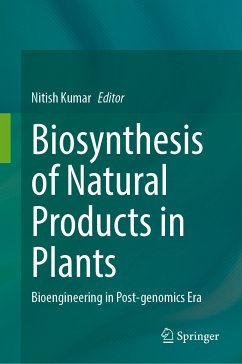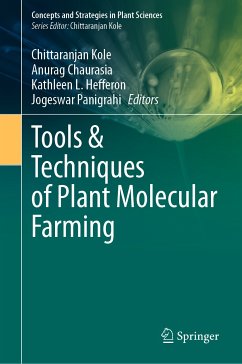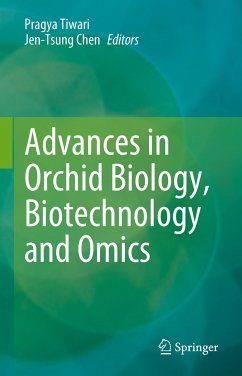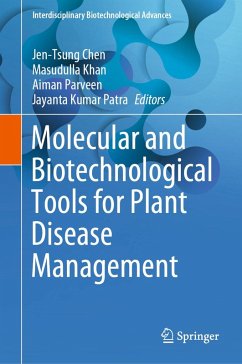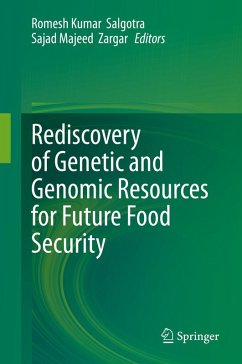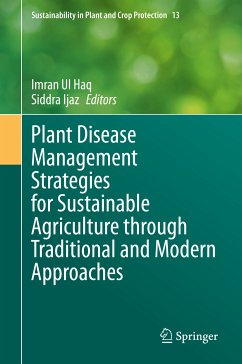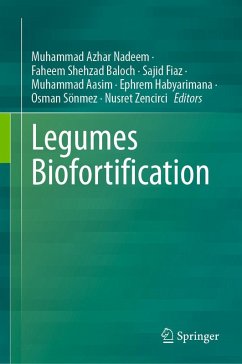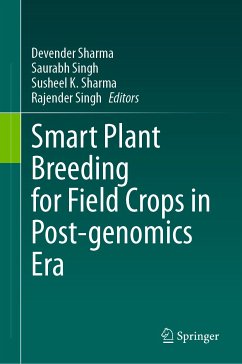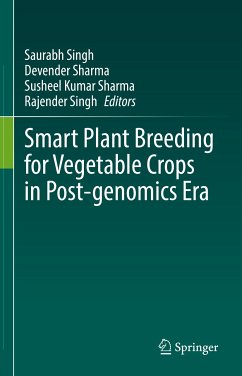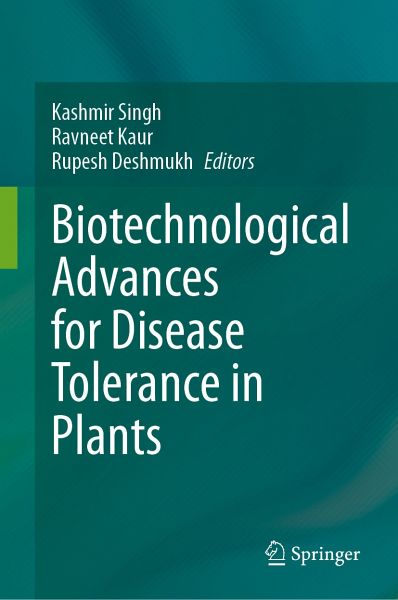
Biotechnological Advances for Disease Tolerance in Plants (eBook, PDF)
Versandkostenfrei!
Sofort per Download lieferbar
136,95 €
inkl. MwSt.
Weitere Ausgaben:

PAYBACK Punkte
68 °P sammeln!
This book covers the biotechnological advances being used for the understanding of plant diseases and the subsequent enhancement of disease resistance in crop plants. Chapters are focused on recent advances in sequencing technologies, computational resources and genomics tools useful for the identification of loci governing disease resistance. In addition, emphasis is given to novel approaches like genomic selection for achieving significant genetic gain for quantitative disease resistance. The book thoroughly describes sequencing-based approaches like whole genome sequencing, resequencing, an...
This book covers the biotechnological advances being used for the understanding of plant diseases and the subsequent enhancement of disease resistance in crop plants. Chapters are focused on recent advances in sequencing technologies, computational resources and genomics tools useful for the identification of loci governing disease resistance. In addition, emphasis is given to novel approaches like genomic selection for achieving significant genetic gain for quantitative disease resistance. The book thoroughly describes sequencing-based approaches like whole genome sequencing, resequencing, and transcriptome profiling being explored for the understanding of disease resistance mechanisms. Finally, several chapters systematically describing the utilities and concerns of high-end technologies like genome-editing are provided. Simplified Illustrations are provided in every chapter to explain different biotechnological approaches and strategies. The book will help to better explore the biotechnological advances in development of disease resistant crop varieties.
Dieser Download kann aus rechtlichen Gründen nur mit Rechnungsadresse in A, B, BG, CY, CZ, D, DK, EW, E, FIN, F, GR, HR, H, IRL, I, LT, L, LR, M, NL, PL, P, R, S, SLO, SK ausgeliefert werden.



